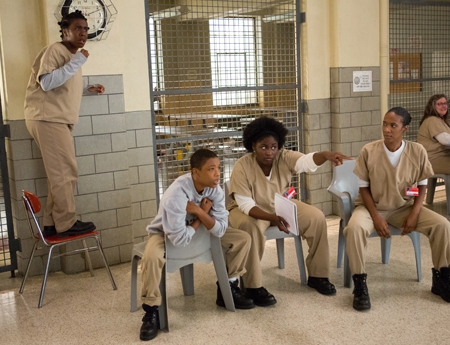New Rules for Emmys Shake Up 2015 Race

The smarter way to stay on top of broadcasting and cable industry. Sign up below
You are now subscribed
Your newsletter sign-up was successful
Seth Meyers, during his opening monologue at the Primetime Emmy Awards last August, said: “We had comedies that made you laugh and comedies that made you cry, because they were dramas submitted as comedies.” Six months later, the awards show’s organizers have made it harder for this year’s host to make a similar joke.
In February, the Television Academy announced rules modifications affecting the miniseries (now “limited series”), variety and guest-actor categories. But the highest profile changes came to the drama and comedy series categories, the voting process and the rules governing what genre a show falls into. All 30- minute scripted series will now be comedies, and all hour-long scripted series dramas. In the drama- and comedy-series categories, the minimum number of nominees increased from six to seven. And winners—previously determined by small “blue-ribbon committees”—will now be voted on by all members of a category’s relevant peer group who attest to having viewed all nominees and having no conflicts of interest.
“I think our board did a terrific job of addressing a handful of issues that had some gray areas around them and making some changes to the voting procedures in the second round,” academy chairman and CEO Bruce Rosenblum, president of Legendary Television and Digital Media, told B&C in an interview published online Feb. 21.
Asked about Meyers’ joke and the criticism that it referenced, Rosenblum said the academy was “aware of that discussion.” In 2014, the most-nominated comedy was Netflix’s Orange Is the New Black, an hour-long show set in a women’s prison, one whose first season ended with one character nearly beating another to death. The academy also allowed Showtime’s hour-long Shameless to move from drama to comedy, where it landed a best actor nod for William H. Macy.
Rosenblum pointed out that the question of which show belongs in which category has been “an issue for more than just the past year.”
Come summer, the new category rules may make for a dramatically different Emmy race. Though producers will be able to appeal to be included in an alternative category, the 60-30 rule would place Orange and Shameless in the drama categories, creating tighter competitions there and opening up new comedy slots. They will also define Amazon’s 30-minute Transparent—winner of the Golden Globe for best comedy series in January, but a feasible drama candidate going into its first Emmys—as a comedy.
“It changes it big-time when you have Orange Is the New Black as a major player,” said Tom O’Neil, editor and CEO of Gold Derby, which handicaps awards races. “It’s forcing a lot of networks to conform to certain definitions and not giving them as many options of moving around between comedy and drama based on what their best Emmy chance is.”
The smarter way to stay on top of broadcasting and cable industry. Sign up below
The uptick in nominees will also have an effect.
“If it had expanded to seven last year, I think we would have seen [FX’s] The Americans nominated,” O’Neil said, noting that Emmy voters “are fiercely loyal to the returning nominees,” a tendency that can leave newer shows out in the cold. “This is where in cable I think some of the less popular shows have a chance of getting in there.” Even more opportunities could come under the academy’s “2% rule,” which remains in place for the best drama and comedy categories and states that a show that falls within 2% of the votes of the seventh nominee also receives a nomination—meaning that the number of comedy- or drama-series nominees could balloon to as many as nine.
When it comes to who is selecting the nominees, not much will change. All members of a category’s peer group are eligible to vote for nominees whether they have seen the shows they’re voting for or not—turning the nomination process into “a pure popularity contest,” as O’Neil put it. But, according to Rosenblum, the academy is “working on processes” to ensure that second-round voters actually have seen all the nominated shows before they vote.
“Anything that expands the participation of the academy members is a very good idea,” O’Neil said.
